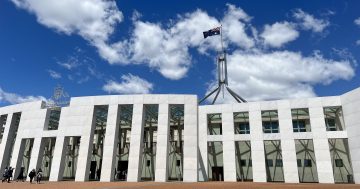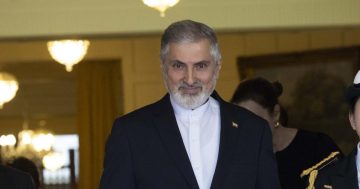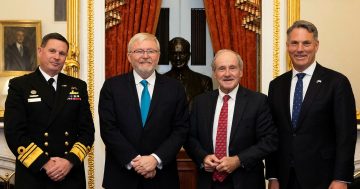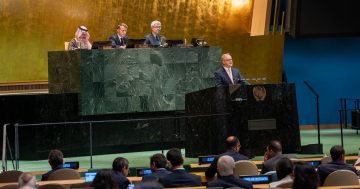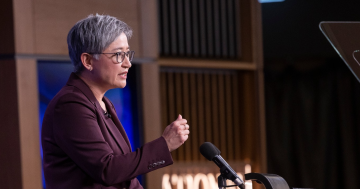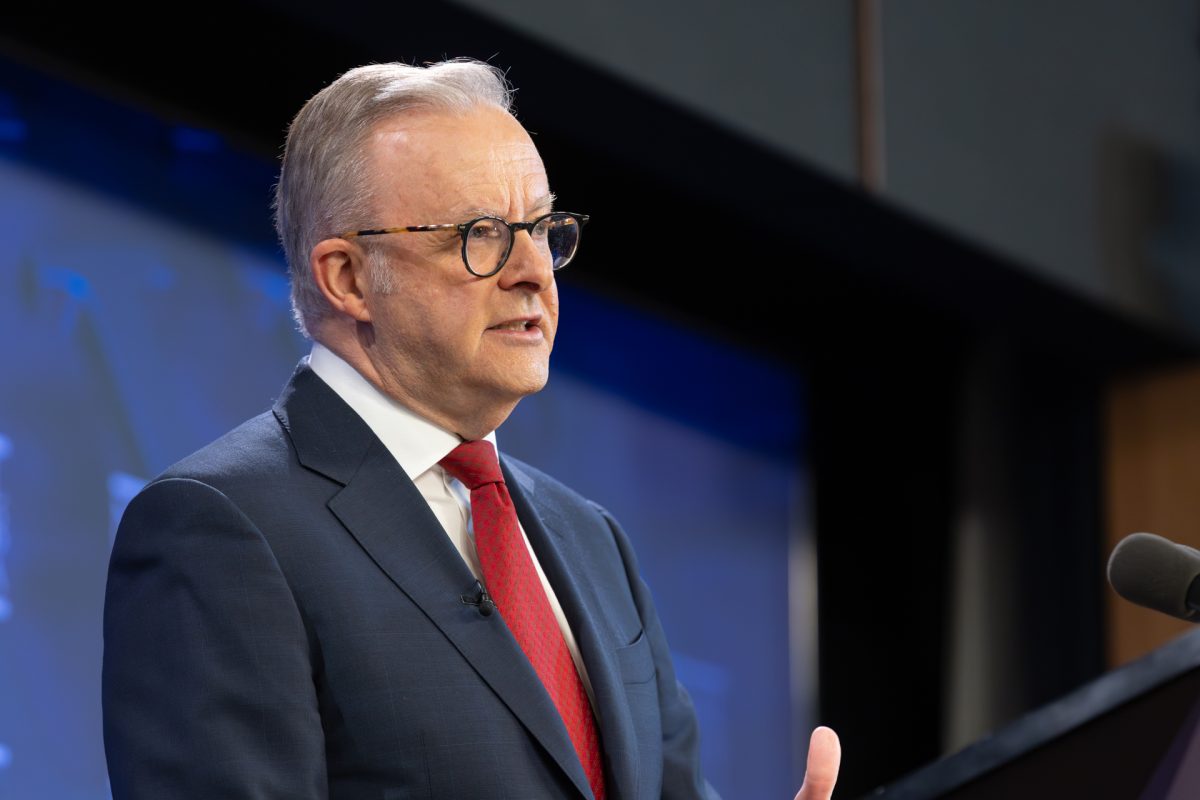
Prime Minister Anthony Albanese says there is nothing inconsistent about any of his comments regarding Iran. Photo: Thomas Lucraft.
Opposition frontbencher Andrew Hastie makes a good point in describing Anthony Albanese’s response to the United States’ strikes on Iran as a little flat-footed.
The Prime Minister was obviously not informed prior to US President Donald Trump ordering the weekend strikes on three Iranian nuclear facilities.
It’s Mr Trump’s prerogative to inform who he wants.
But it took Mr Albanese almost 24 hours after the strikes to convene a meeting of the National Security Committee of Cabinet and to subsequently confirm Australia’s support for the US action.
That didn’t come until after the distribution of a somewhat wishy-washy statement (that no-one in the Federal Government wanted to put their name to) calling for a de-escalation of hostilities, but neither backing or condemning the strikes either way.
It was, in fact, Tanya Plibersek then Penny Wong who were the first government ministers to express Australia’s support for the US strikes.
They did that on Monday morning (23 June), which was followed by a joint press conference at Parliament House with Mr Albanese and Senator Wong.
By then, it was quite clear the Federal Government was coming to the party a little late.
Some nations, including the United Kingdom, expressed their support straight away while others offered their immediate condemnation.
In Australia, the Federal Opposition declared the Coalition’s support on Sunday.
The Greens were just as quick and firm in denouncing the strikes.
Yet the Labor Federal Government wasn’t quite sure how to react.
Whatever position the government would take, it was destined to be a controversial one and it should be fiercely critiqued. There are big and serious stakes at play.
This column is certainly not an endorsement of the US action, but merely of the need for the Australian government to be clear about its position.
Leaving a void to be interpreted and misinterpreted for a day shouldn’t have been on the table.
When the PM did finally talk on the issue he was forthright in articulating his position.
“The world has long agreed that Iran cannot be allowed to get a nuclear weapon and we support action to prevent that. That is what this is,” he said.
“The US action was directed at specific sites central to Iran’s nuclear program. We don’t want escalation and a full-scale war. We continue to call for dialogue and for diplomacy.
“As I’ve said for many days now, we are deeply concerned about any escalation in the region and we want to see diplomacy, dialogue and de-escalation.
“We’ve been upfront about the challenge facing the international community – that is, dealing with the threat posed by any Iranian nuclear weapons program and dealing with the risk of regional escalation.
“And that’s why Australia called upon Iran to come to the table and abandon any nuclear weapons program.
“Iran didn’t come to the table, just as it has repeatedly failed to comply with its international obligations. We urge Iran not to take any further action that could destabilise the region.”
Under questioning, the Prime Minister let it be known that the strikes were “a unilateral action by the United States” and that Australia wasn’t involved in the decision.
“We aren’t a central player in this conflict. That’s just a fact,” Mr Albanese said.
“What we do is we run an orderly, stable government. But I made comments about this in three countries over recent days and my comments today are perfectly consistent with that.”
Condoning or condemning the action was pretty much the government’s only options, yet while other political parties in Australia clearly stated on which side they landed, the actual government looked to be having an each-way bet.
The stall allowed the Coalition to wedge the government on the issue – hence Mr Hastie’s “flat-footed” remark.
The acting shadow foreign affairs minister said Mr Albanese should have called a national security committee meeting sooner than he did, and he should have “stood up” and spoken to the Australian people straight away.
“The Prime Minister has been very ambiguous, very flat-footed,” Mr Hastie said during one media interview.
“His instincts are all wrong.”
In another interview, Mr Hastie was giving the Coalition credit for Labor’s sudden “bipartisanship” on the issue, saying the government had “essentially endorsed our position”.
That’s a cheeky statement, particularly when it’s the government that states a nation’s position.
But the government made room for the Opposition to jump in by its momentary equivocation.
Original Article published by Chris Johnson on Region Canberra.


